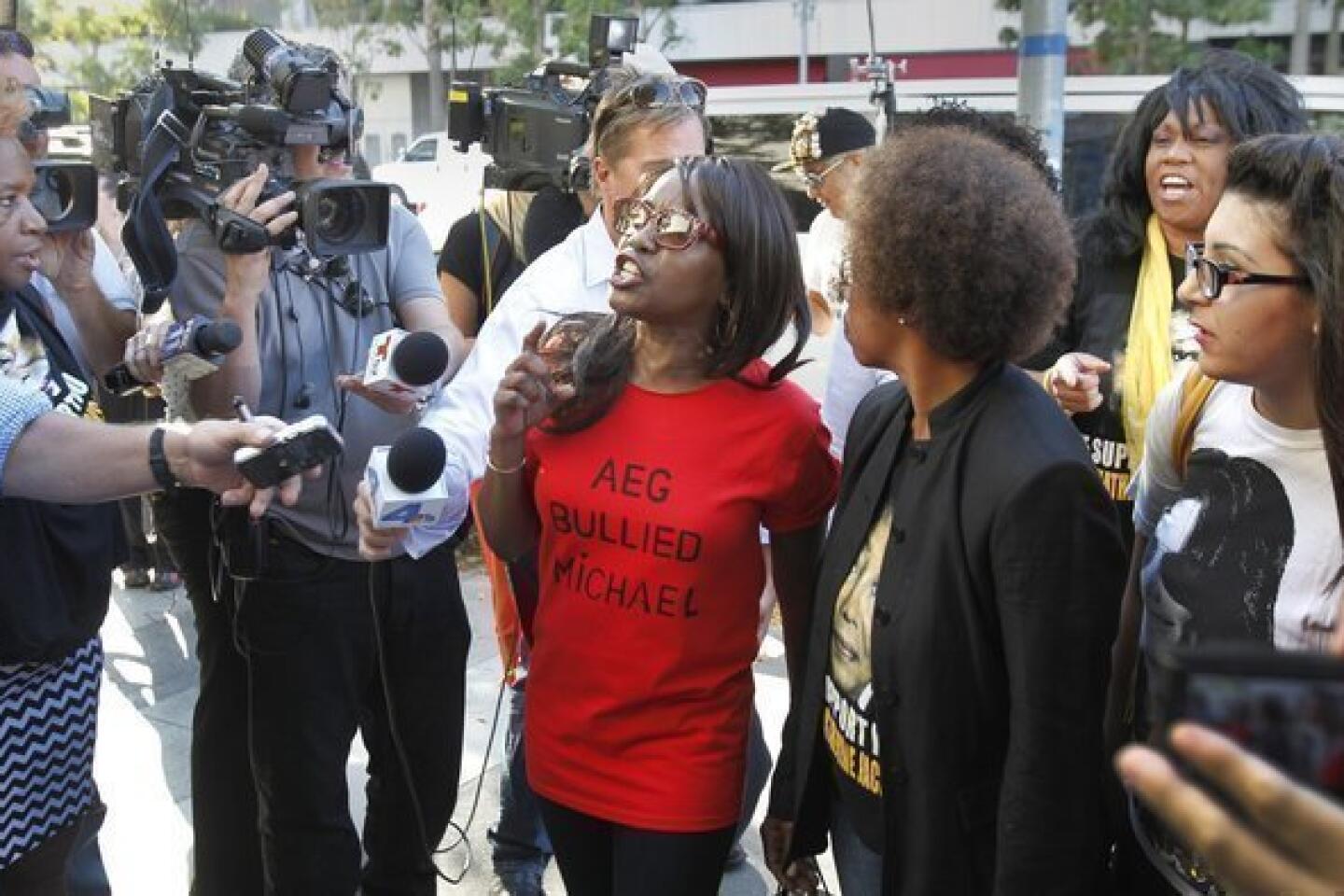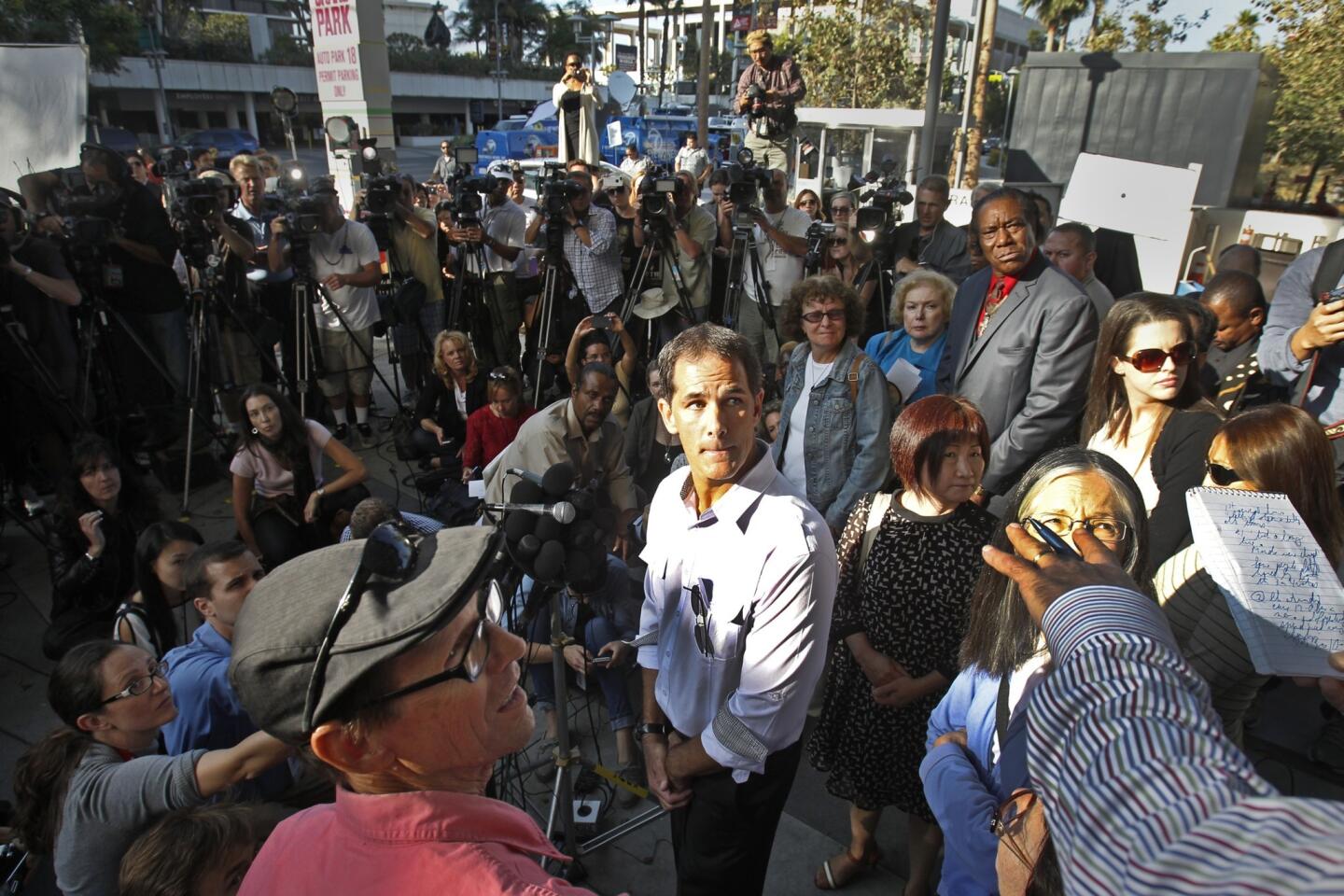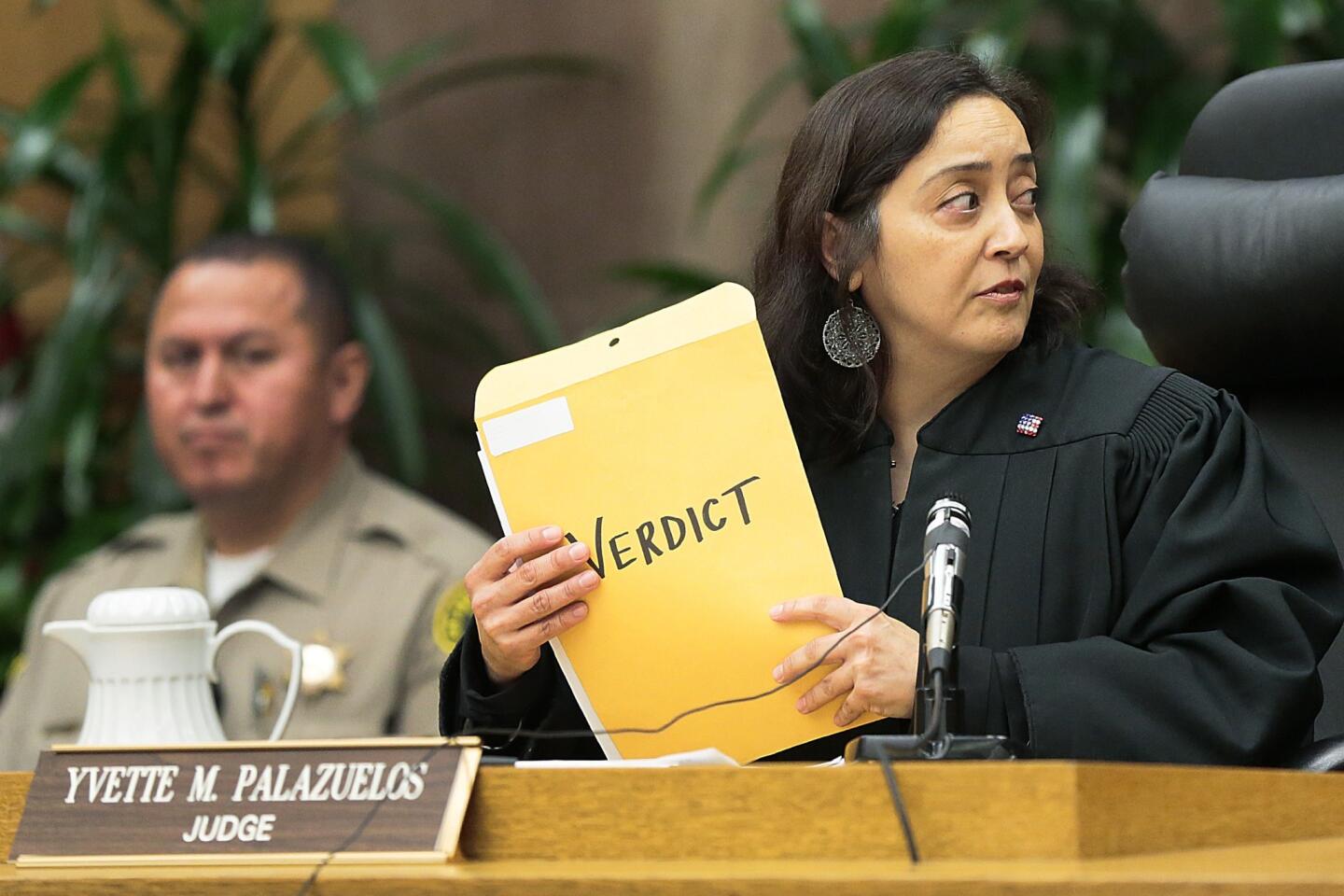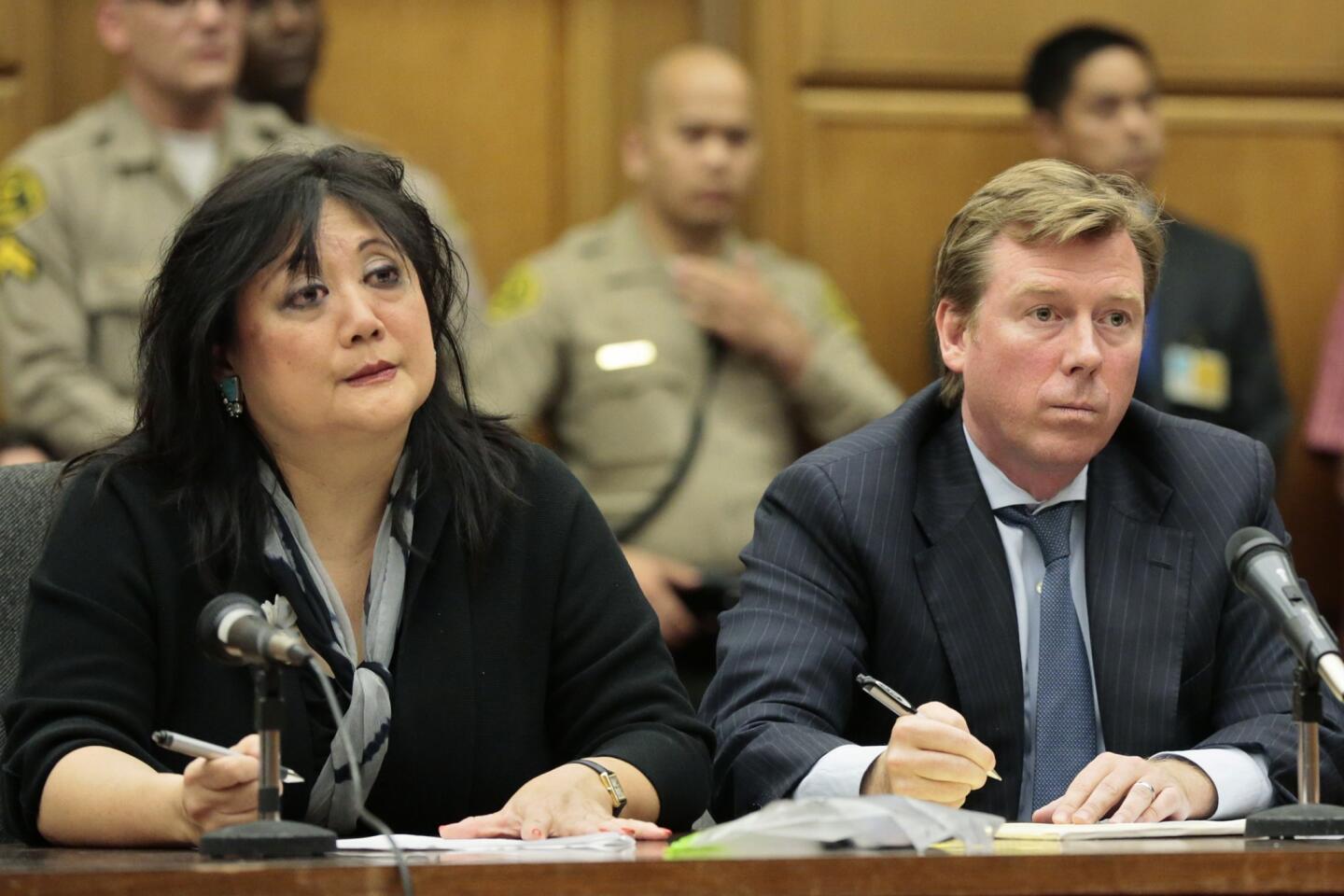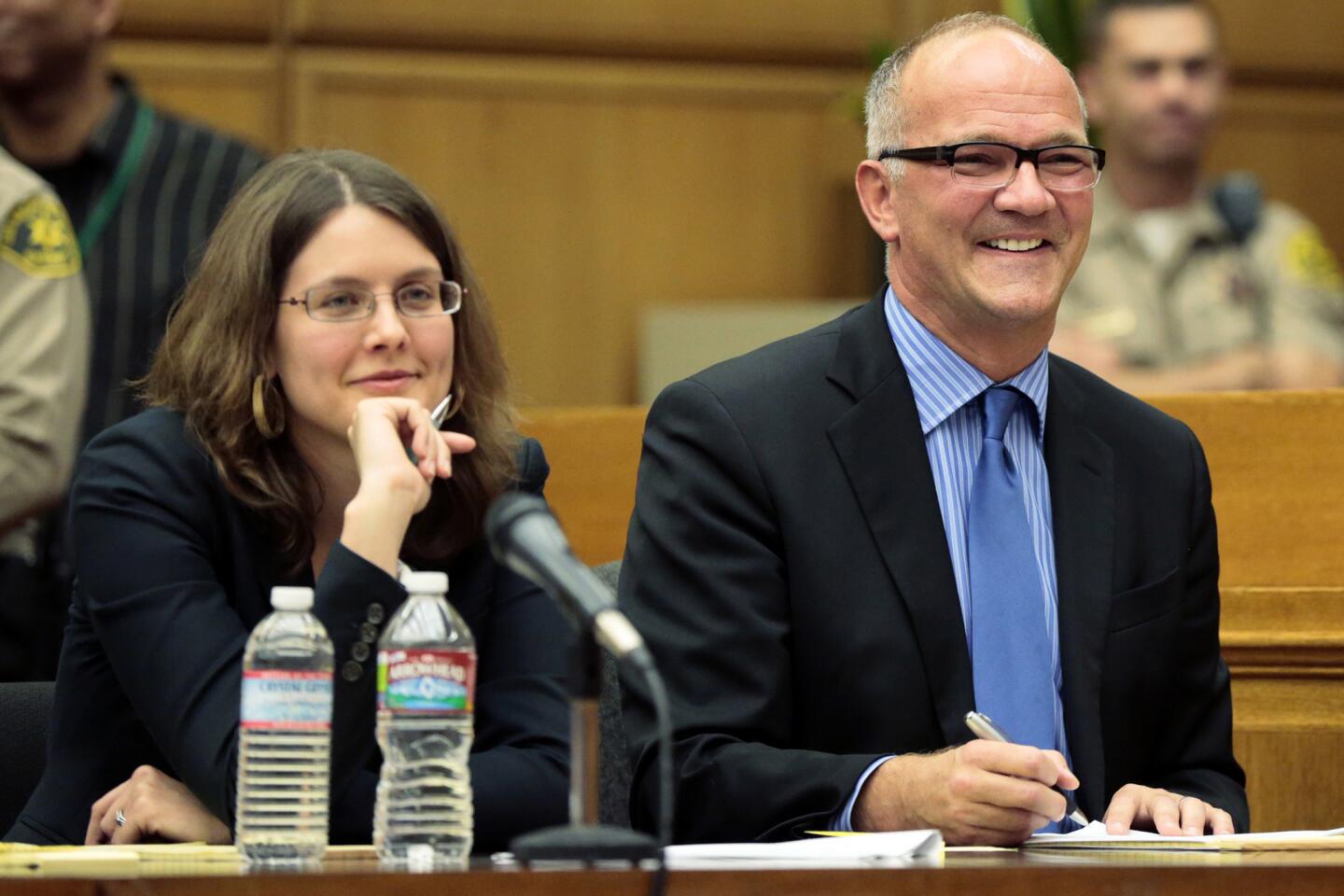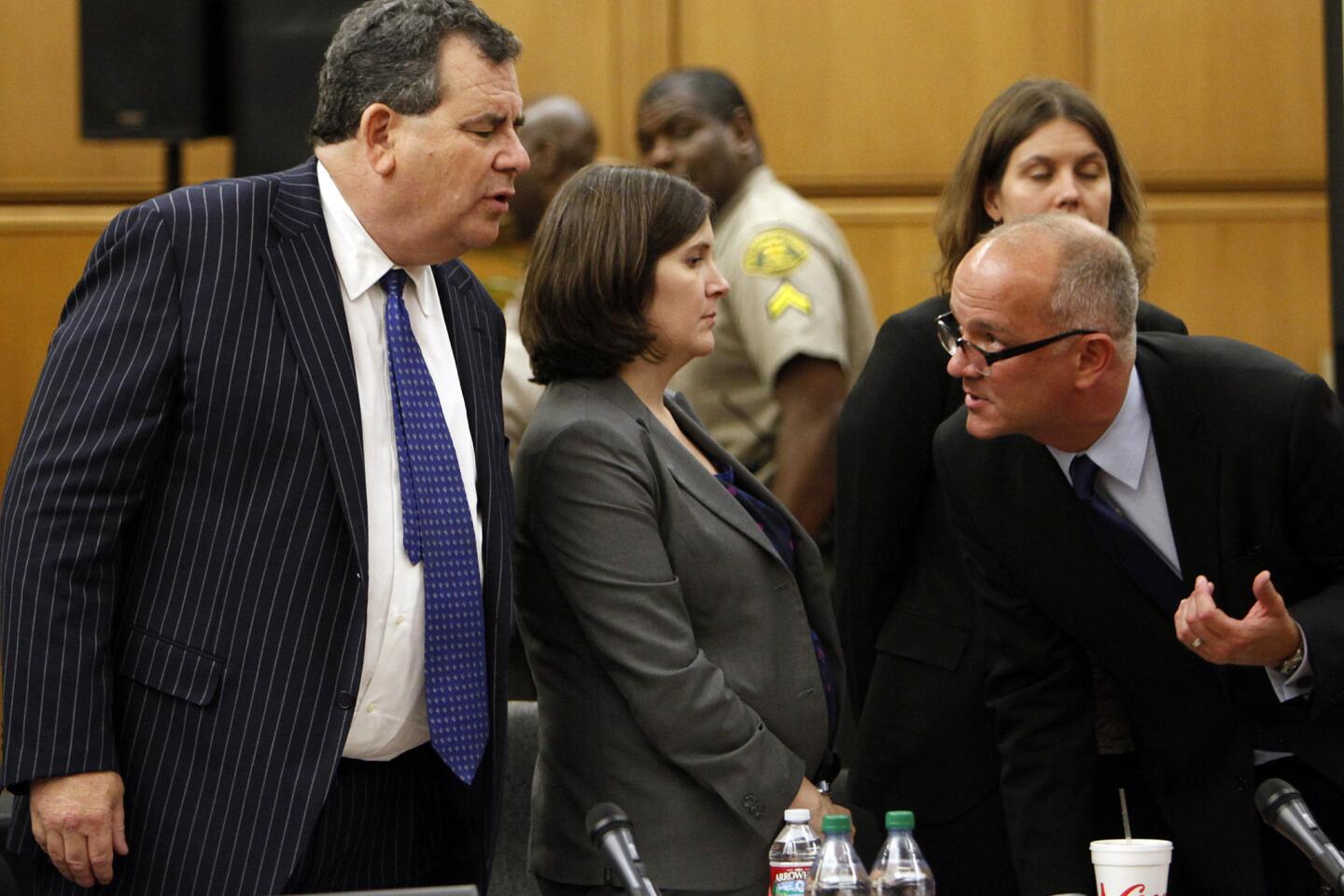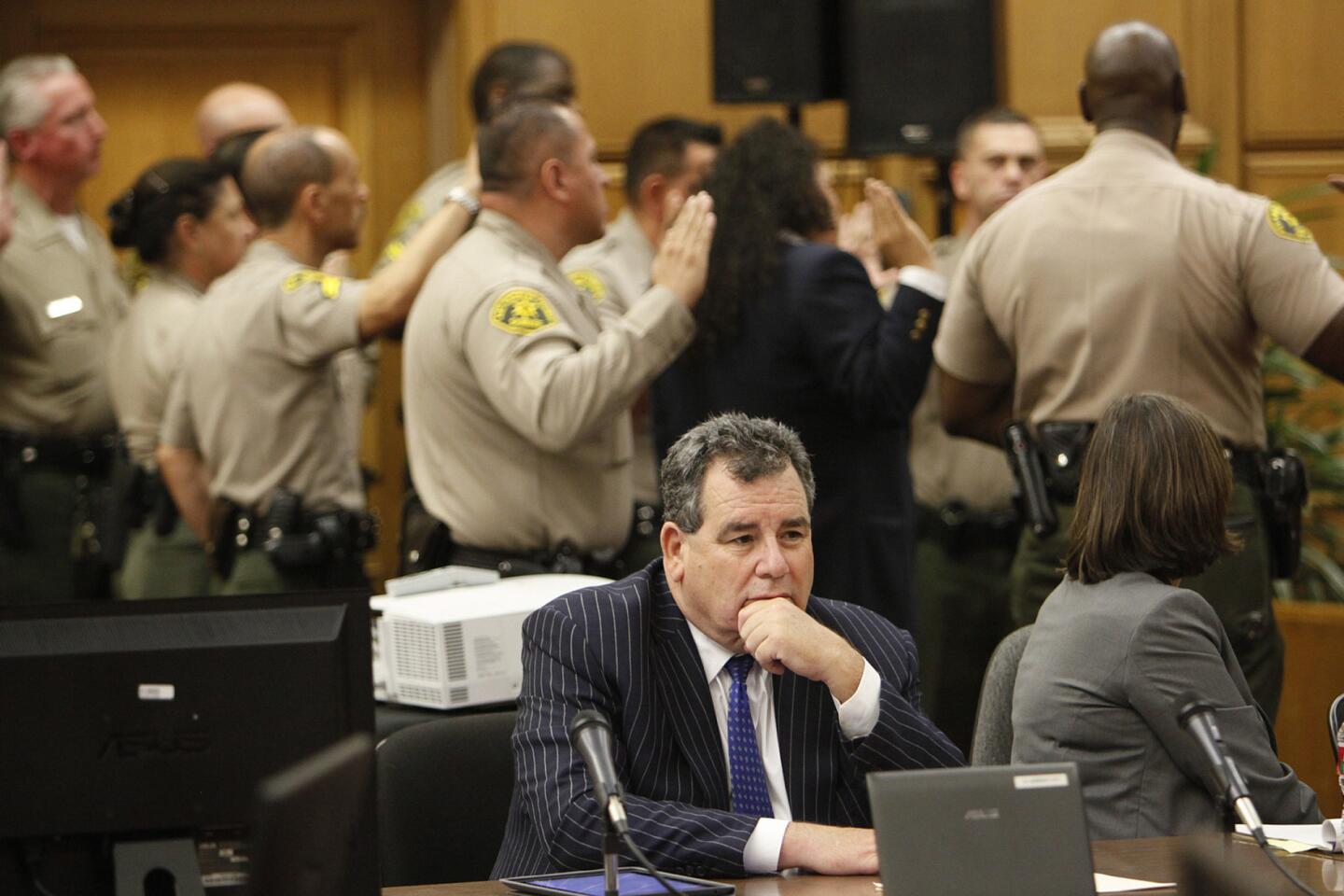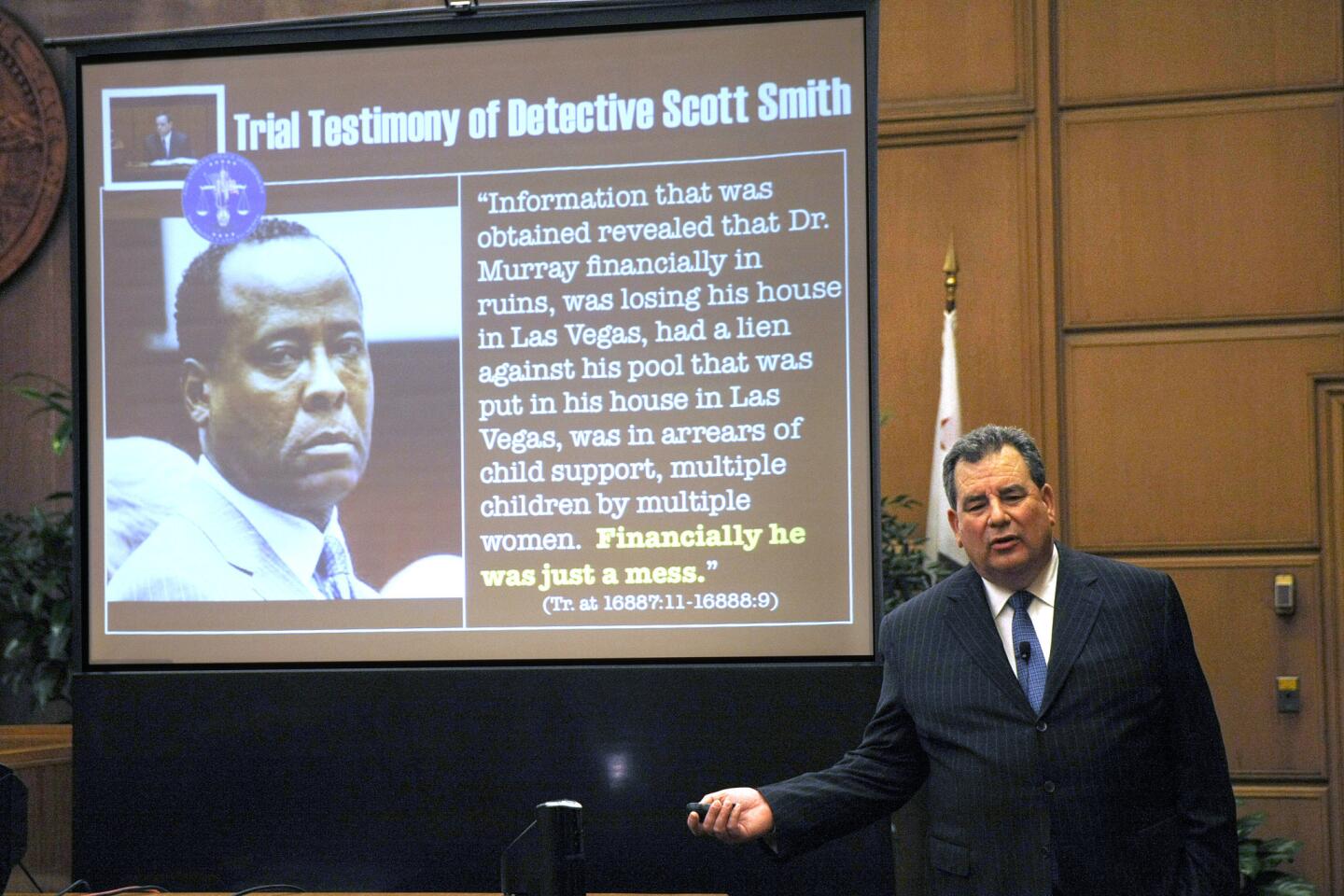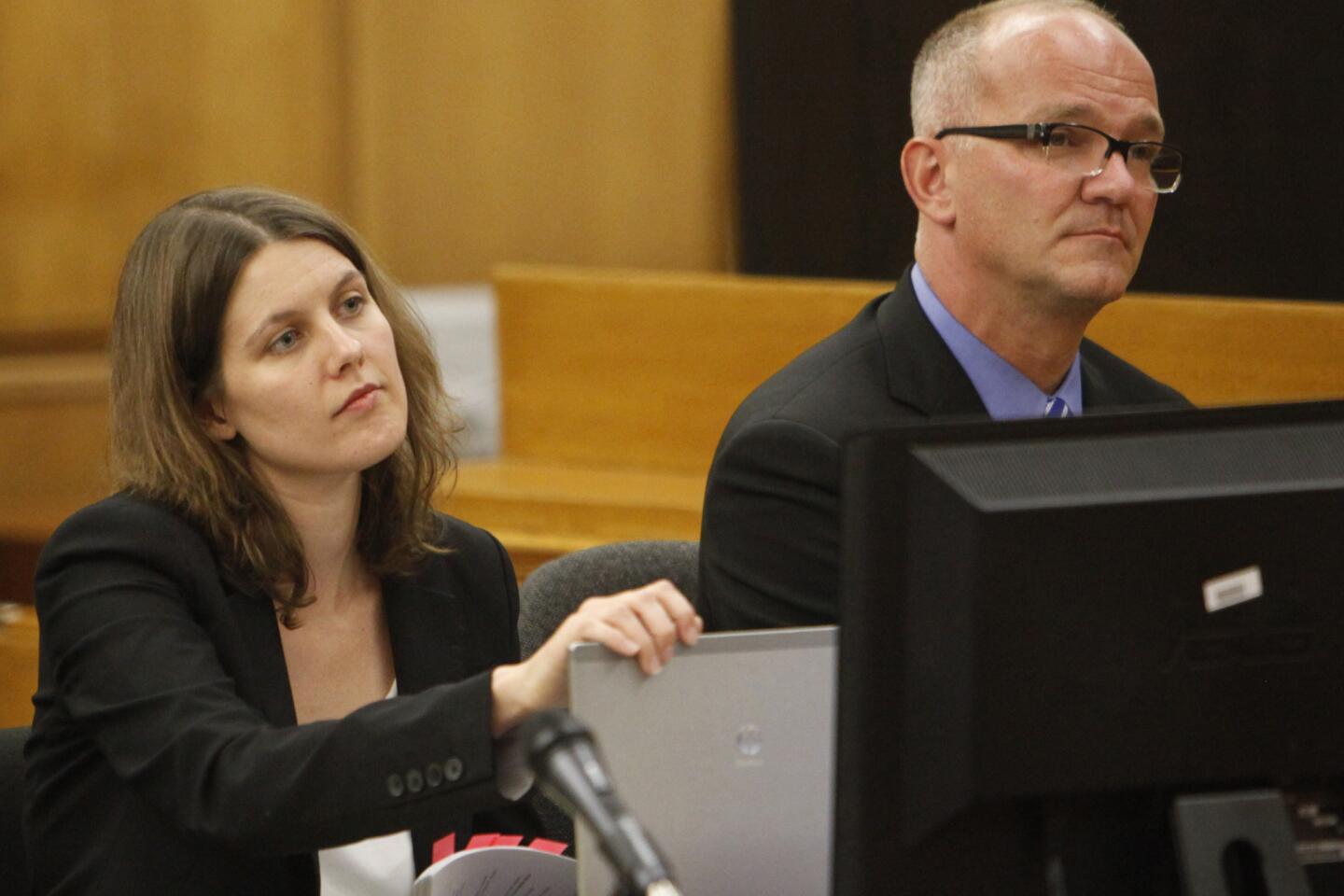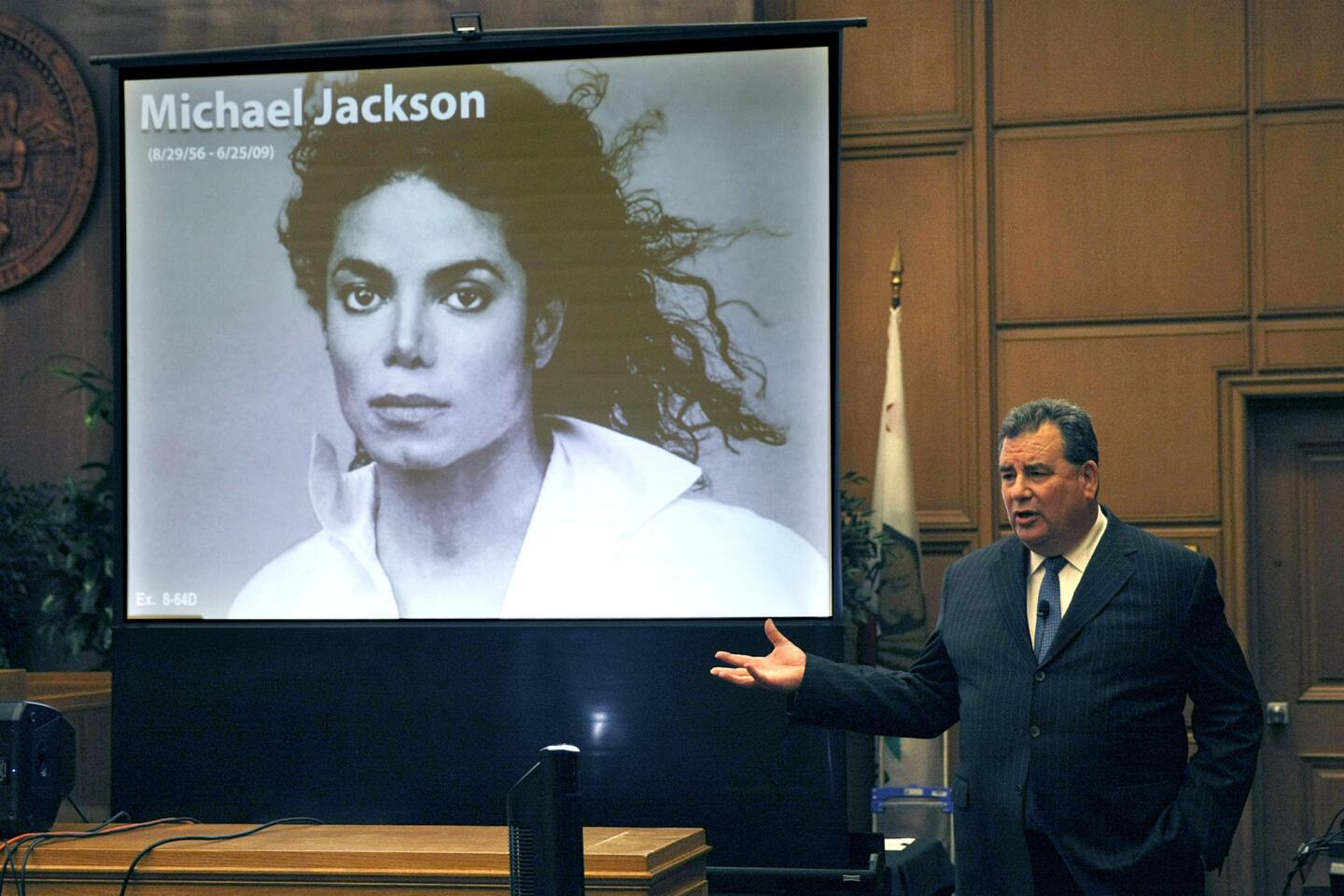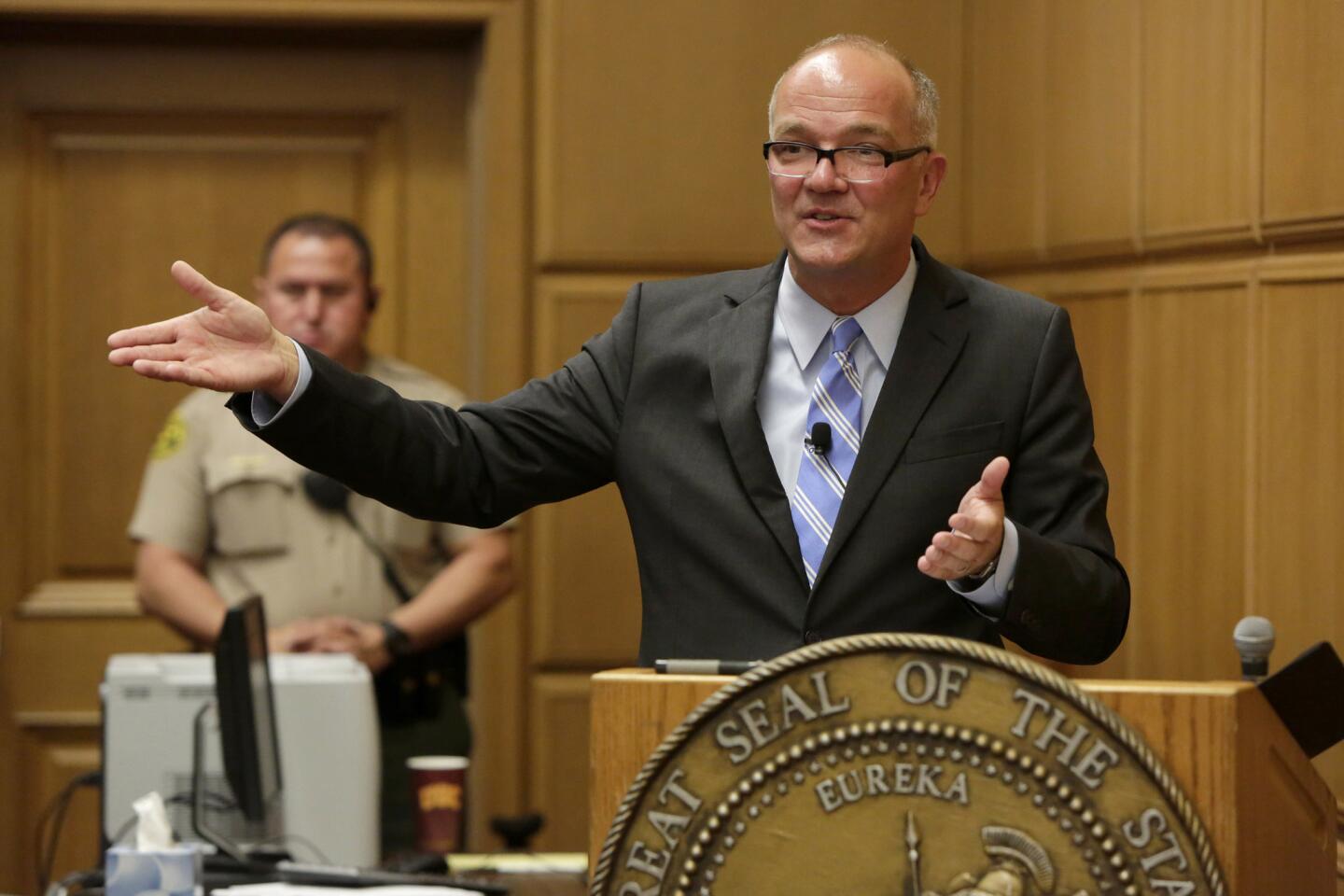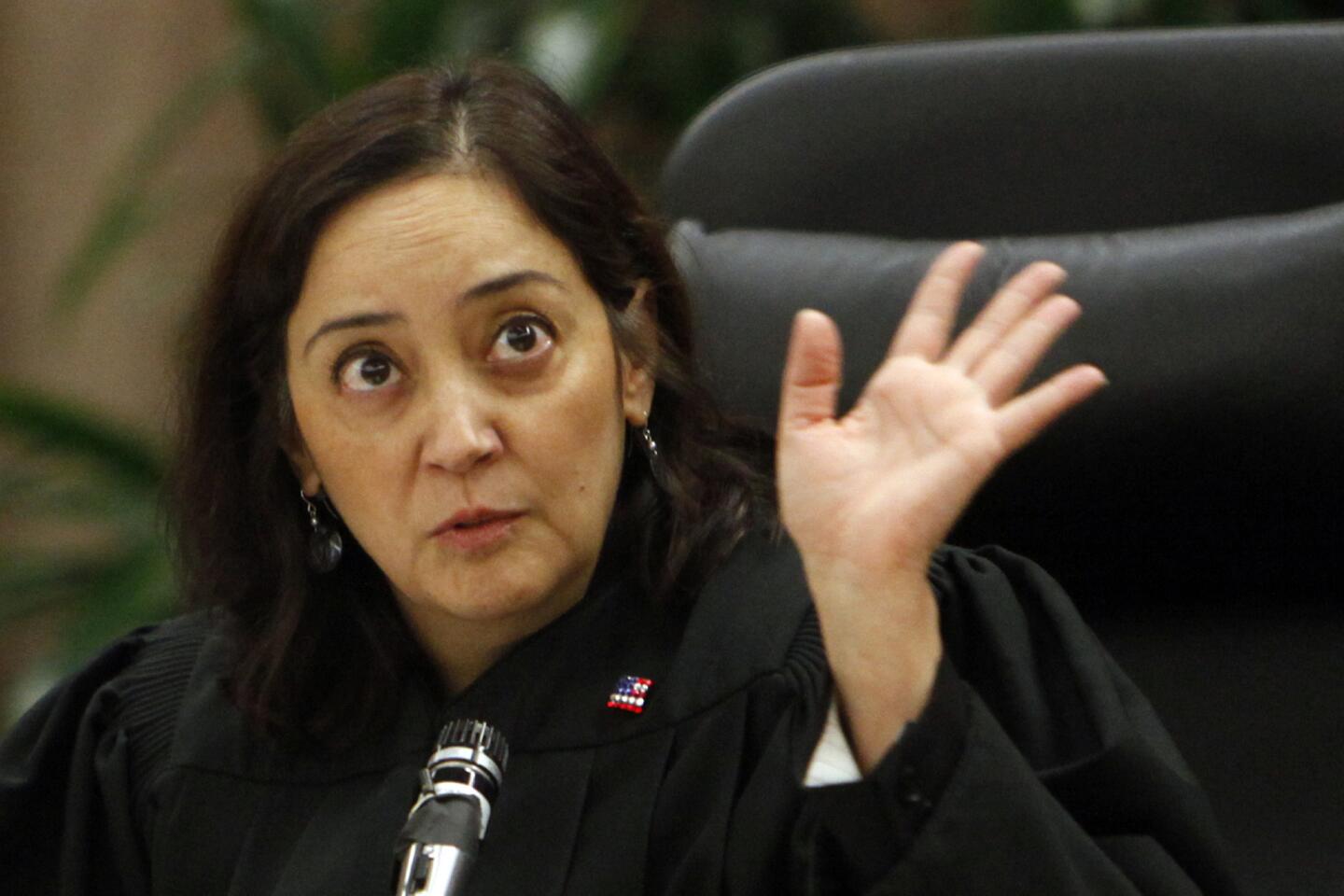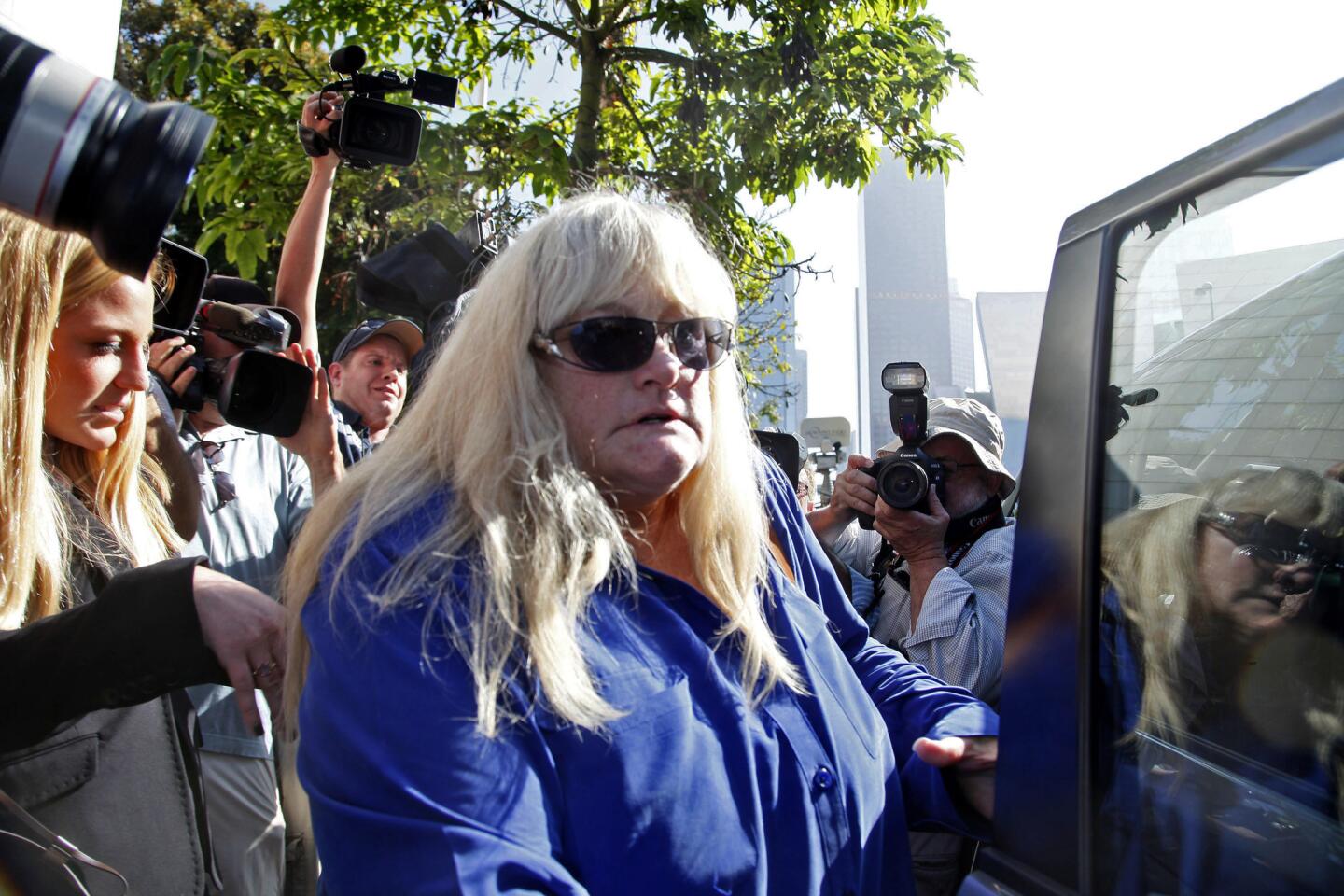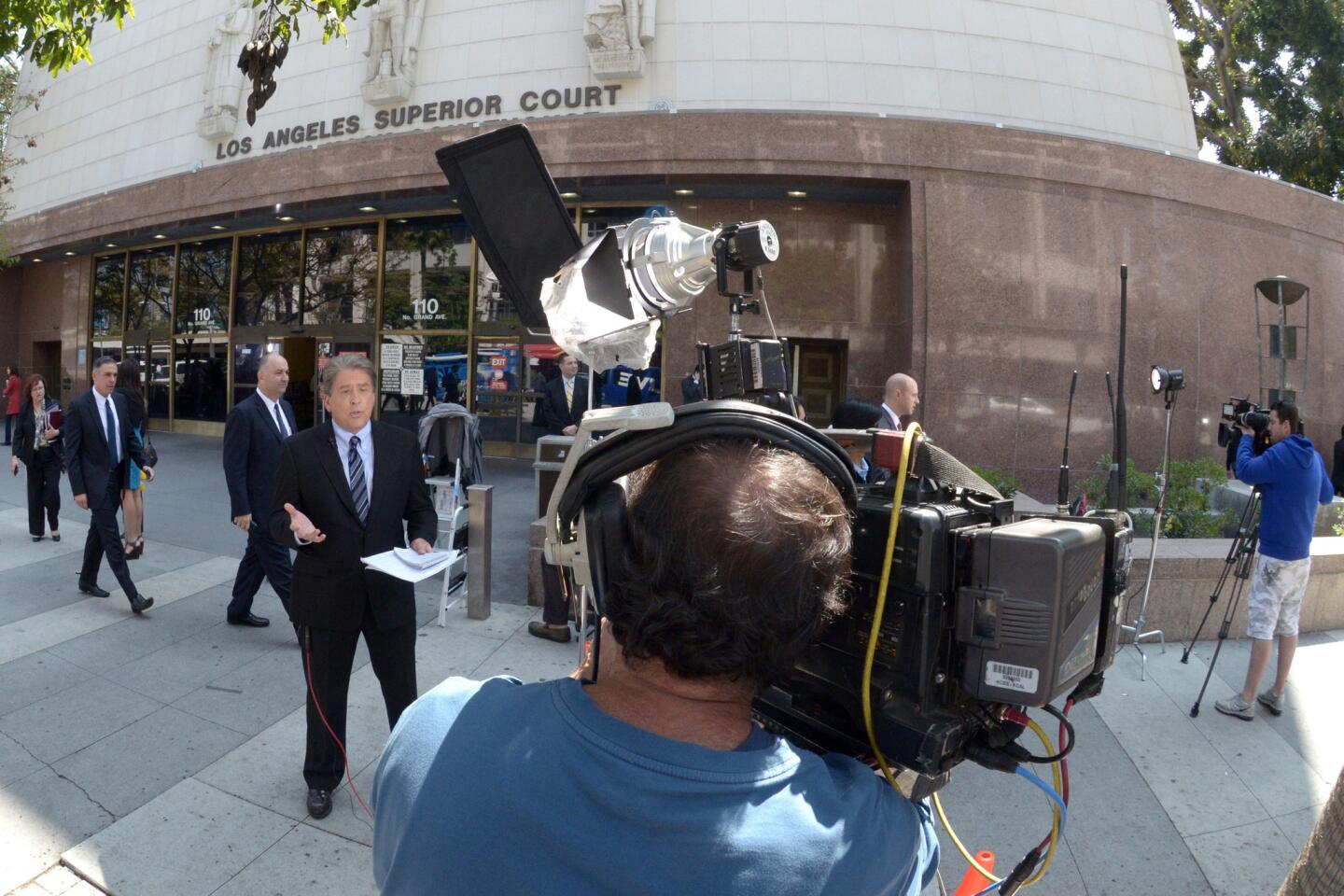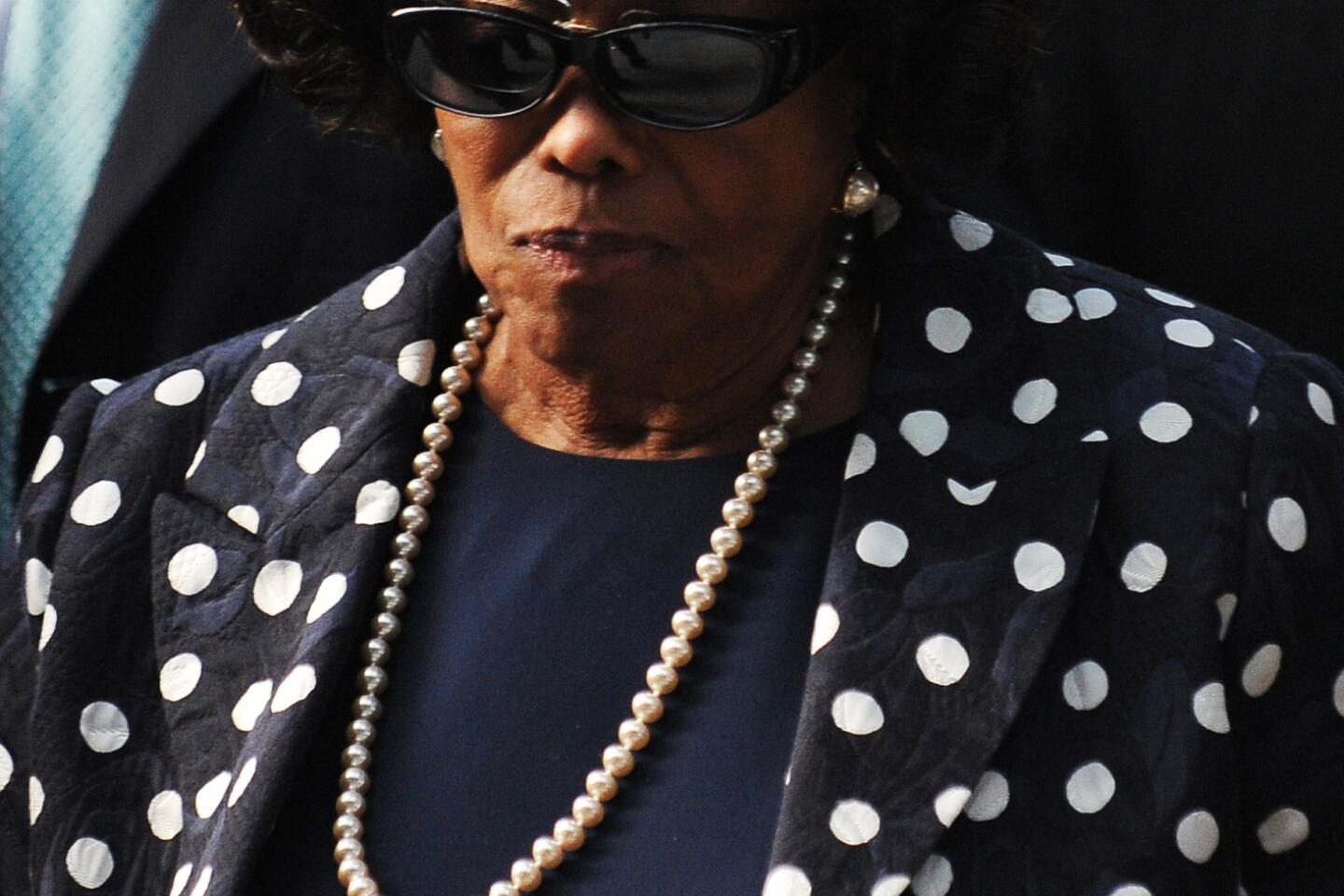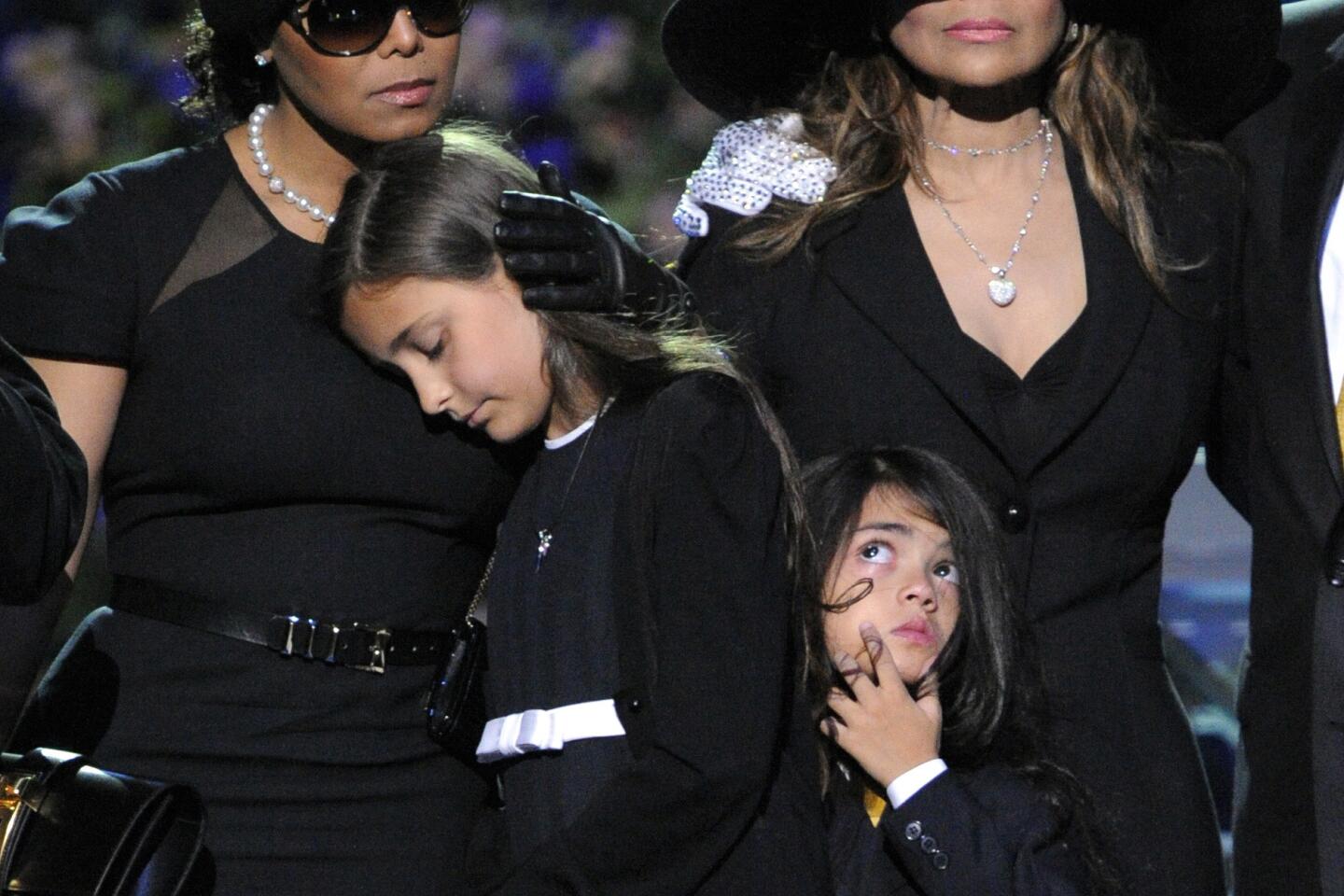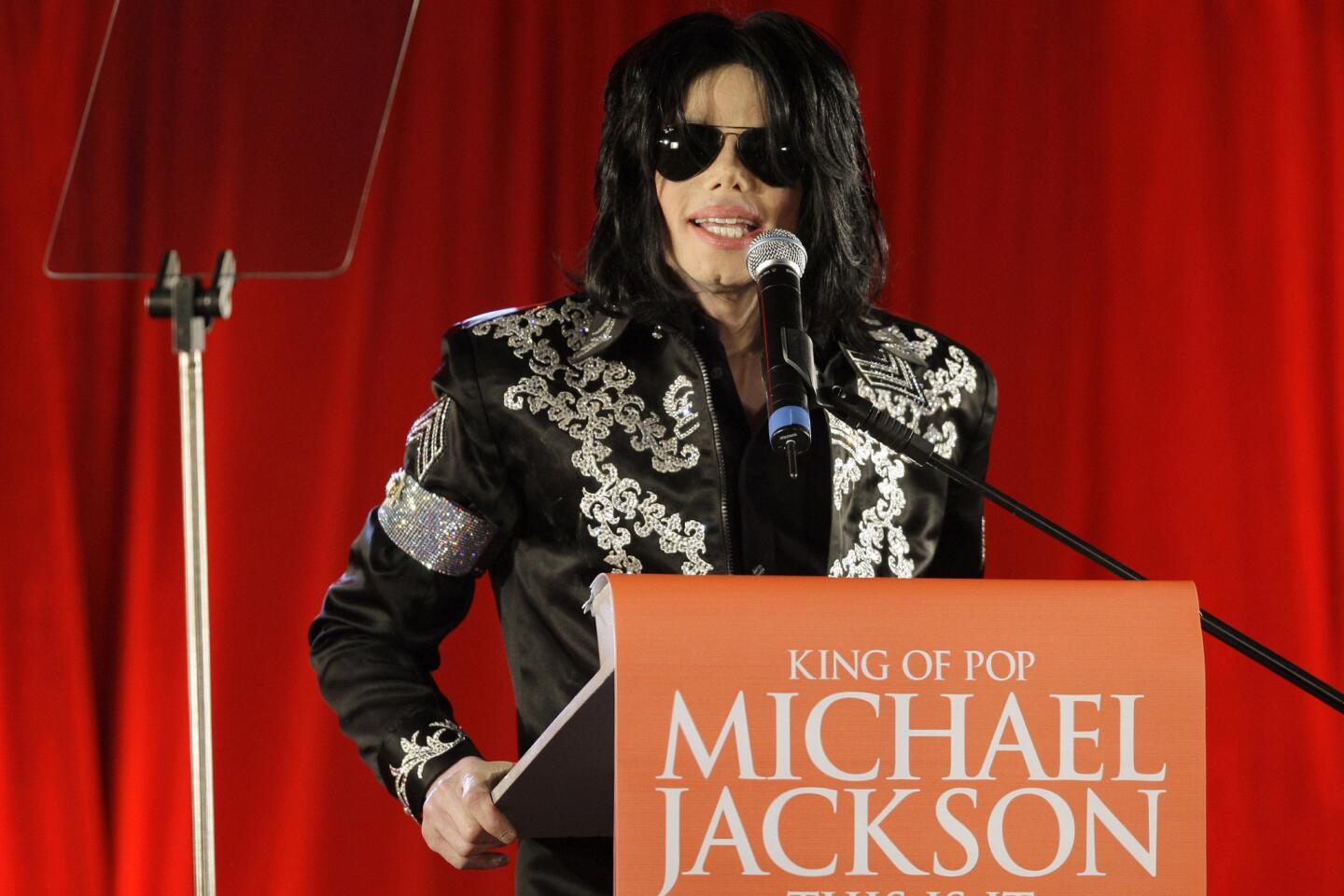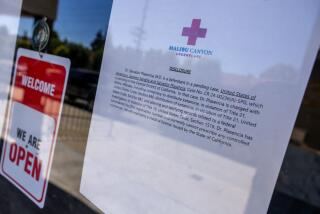Michael Jacksonâs doctor had conflict of interest, expert testifies
The director of Stanford Universityâs sports medicine program testified Monday that Michael Jacksonâs doctor for his âThis Is Itâ concert series, who administered a fatal dose of the anesthetic propofol to the singer, had conflicts of interest with the tour promoter that âwere likely to lead to poor medical decisions.â
Testifying in the wrongful death case brought by Jacksonâs mother and children against promoter and producer AEG Live and two of its executives, Dr. Gordon Matheson said Dr. Conrad Murrayâs debts meant he badly needed the $150,000 a month he was supposed to receive. Matheson testified that the contract made him answerable to AEG rather than his patient, and that because he would have been out of a job if the 50 concerts had been postponed, Murray was more likely to want to please the company.
Matheson, who has an M.D. and a doctorate, said that when Jacksonâs health deteriorated, âthat conflict played out.â
Matheson testified under the assumption that Murray had a contract with AEG, one of the most contentious points at the trial, which just completed its 35th day of testimony. The Jacksons say that AEG negligently hired and supervised the doctor, while the entertainment company says any money it was supposed to pay him was an advance to Jackson, who was Murrayâs employer. Murray signed his contract the day before Jackson died on June 25, 2009. Neither AEG nor Jackson signed it.
The Stanford doctor, who worked as the team physician for the Vancouver Canucks professional hockey team and the Canadian Olympic hockey team, said it didnât make a difference that AEG didnât sign the contract because the terms had been negotiated, and that Murray was âfully engagedâ and had passed on his bank information to the company so he could get paid.
âWhether it was signed or not didnât change my feeling as to whether there was conflict of interest,â he testified.
Matheson pointed to a line in the contract that said Murray was to âPerform the services reasonably requested by Producer.â The language he said, tied Dr. Murray to AEG even though his was supposed to be looking after Jacksonâs health, creating a conflict âas to which of the interests is primary.â
AEG has argued that the contract Murray signed was one of the three or four drafts and that âProducerâ was one of several mistakes that would have been corrected in the final version of the contract.
Matheson wondered why Murray would close his practice when he faced losing his job caring for Jackson if the show were canceled, especially since he was in such bad financial straits. âIt can produce a bias in the thinking where Dr. Murray wants to preserve that income at all costs and keep the people paying that income happy,â he said.
Matheson discussed several emails written by AEG executives, the tour manager and tour director that have become central pieces evidence in the trial. In one email, AEG Live executive Paul Gongaware wrote of Murray, âWe want to remind him that it is AEG, not MJ who is paying his salary. We want him to understand what is expected of him.â
Matheson said the email ârelates directly to attempts to control the doctorâs decision-making or professional judgment.â
He likened it to a quarterback being pulled from a game in the fourth quarter because of an injury and the team owner pressuring the doctor to put him back into the game by reminding the physician that he was paying his salary. âWe wouldnât normally put an athlete back into the game when they had worsening symptoms related to their health,â he said.
The sports medicine expert said that in order to avoid conflicts, the doctors for Stanford athletic teams are in charge of an athleteâs healthcare. He said they also teach or perform research at the university so their decisions about athletes donât affect their income. He said there is a separate facility away from the coaches where players and doctors can have confidential discussions.
Matheson said that an email from AEG Live Chief Executive Randy Phillips showed he was aware of the potential conflict with Murray but did not believe one existed. In the email he wrote that Murray âdoes not need this gig he [is] totally unbiased and ethical.â
ALSO:
Michael Hastings was not working on Jill Kelley story, wife says
L.A. County beefs up response to vicious dogs in Antelope Valley
LAPD stations on heightened alert after two detectives are ambushed
Twitter: @gottliebjeff
More to Read
Sign up for Essential California
The most important California stories and recommendations in your inbox every morning.
You may occasionally receive promotional content from the Los Angeles Times.
